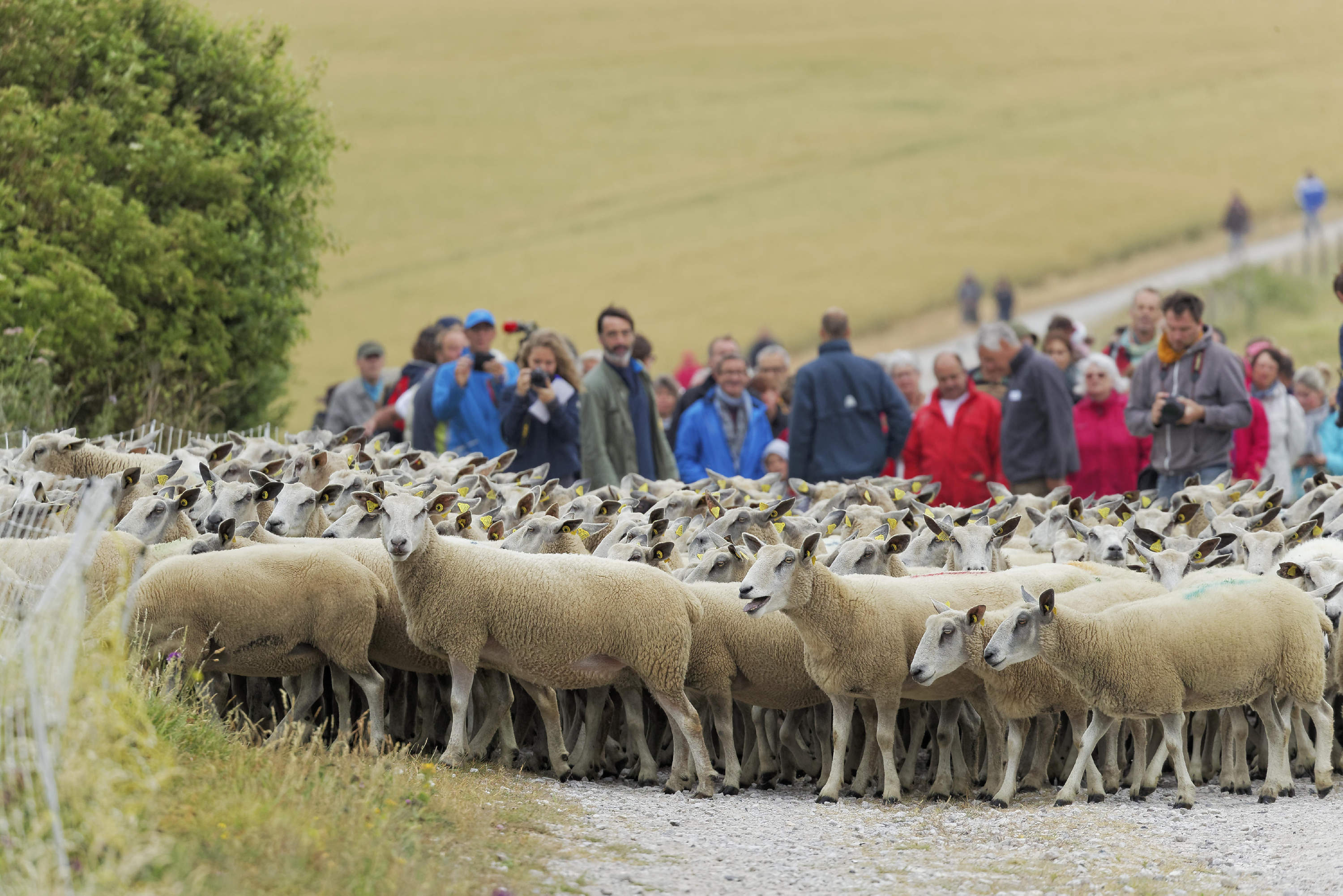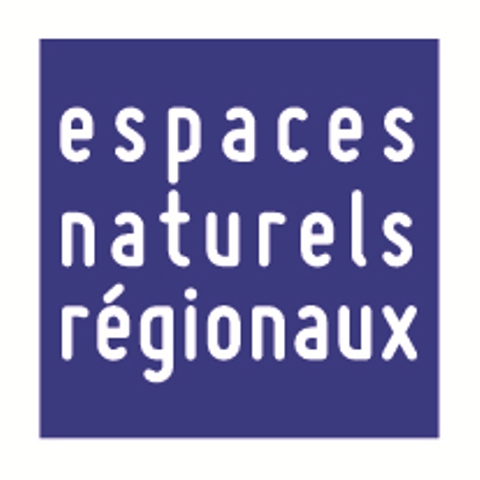Case Study
Organisation of a sheep transhumance in order to maintain remarkable natural environments.
Contact name
Michel Marchyllie
Institution name
ENRx
Region & country
Hauts-de-France region
Summary
A transhumance of 500 sheeps of the Boulonnais breed coming from 6 local sheep farms took place on the cliffs of Cap Blanc-Nez between the cities of Boulogne and Calais. This demonstration was the opportunity to introduce the general public to this endangered regional breed and allow them to discover the natural richness and quality of the landscpae of Cap Blanc-Nez, maintained with appropriate pastoral farming management techniques.

Sheeps transhumance
Photo by Samuel Dhote
Background of the project
Eco-pasturing is an alternative management technique essential to avoiding the closing of certain environments and hiking paths and the loss of biodiversity, which plays a primordial role in ecosystems. It seeks to preserve the flora and fauna of these environments, integrating animal and plant species to the site. Eco-pasturing is thus a condition necessary for the sustainable maintenance of these environments. Boulonnais sheeps are a local breed of the Hauts-de-France region.
- To communicate with the general public to encourage interest in this regional breed.
- To find economic prospects ensuring the viability of the breed in the long term.
- To work with the network “Boulonnais Sheep, the Sheep of the land of the North“, which brings together breeders, butchers and several restaurateurs in order to sell roughly 1,000 sheeps per year.
- To foster the resettling of the breed in its natural habitat, the land of the Boulonnais, characterised by the presence of numerous limestone ridges.
Solution and actions taken
ENRx’s Regional Centre of Genetic Resources, in conjunction with the Regional Natural Park of the Capes and Swamps of the Opal Coast and EDEN 62, are initiating extensive eco-pasturing operations on sensitive natural spaces of the department and initiating pasturing on the Cap Blanc-Nez (a protected space of the Coastal Conservancy) and other limestone ridges in the Pas-de-Calais.
Actions taken:
- The “1st transhumance of Boulonnais sheeps” that allowed the public to meet with breeders and site managers in a relaxed and friendly atmosphere.
- Pasturing on the Cap Blanc-Nez that allows breeders to produce winter sheep, which they can market in the spring, thanks to the existing network.
Other institutions or parties involved
- The Boulonnais Sheep Association,
- A national selection agency for the Boulonnais ovine breed,
- EDEN 62 (in charge of management of Fragile Natural Areas),
- Regional Natural Park of the Capes and Swamps of the Opal Coast,
- The Grand Sites of France,
- The Coastal Conservancy,
- The Departmental Council of the Pas de Calais,
- The Heritage Foundation.
Results
The economic impact of eco-pasturing on the Cap Blanc Nez is real and measured as it allows multiple farmers to generate a revenue stream from their sheep breeding and contributes to the maintenance of their farms.
The site of the Cap Blanc Nez contributes in the order of 50 to 60% to the professional network, “Boulonnais Sheep, the Sheep of the land of the North”.
Challenges
To convince and assist young breeders to continue to breed this regional sheep breed by linking this objective to the management of natural environments through eco-pasturing.
Lessons learned
We have revived a regional breed menaced with extinction by bringing together breeders, a professional network, restaurateurs and natural site managers.
